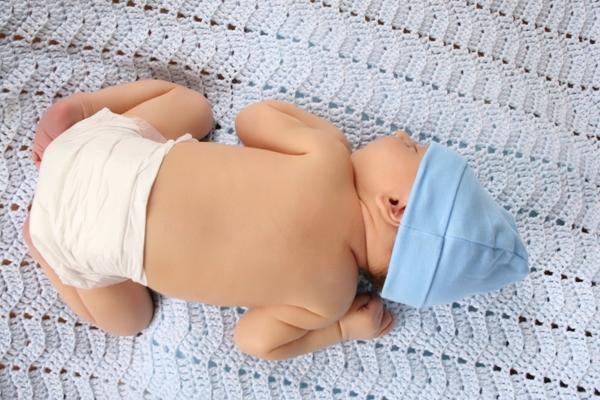Woman's Low Birth Weight May Lead to Fertility Woes Later

Get the world’s most fascinating discoveries delivered straight to your inbox.
You are now subscribed
Your newsletter sign-up was successful
Want to add more newsletters?

Delivered Daily
Daily Newsletter
Sign up for the latest discoveries, groundbreaking research and fascinating breakthroughs that impact you and the wider world direct to your inbox.

Once a week
Life's Little Mysteries
Feed your curiosity with an exclusive mystery every week, solved with science and delivered direct to your inbox before it's seen anywhere else.

Once a week
How It Works
Sign up to our free science & technology newsletter for your weekly fix of fascinating articles, quick quizzes, amazing images, and more

Delivered daily
Space.com Newsletter
Breaking space news, the latest updates on rocket launches, skywatching events and more!

Once a month
Watch This Space
Sign up to our monthly entertainment newsletter to keep up with all our coverage of the latest sci-fi and space movies, tv shows, games and books.

Once a week
Night Sky This Week
Discover this week's must-see night sky events, moon phases, and stunning astrophotos. Sign up for our skywatching newsletter and explore the universe with us!
Join the club
Get full access to premium articles, exclusive features and a growing list of member rewards.
Girls born with a low birth weight may be at increased risk for fertility problems as adults, a new study from Sweden suggests.
Researchers looked at women who were seeking fertility treatment— whether it was because they were infertile or their partner was — and found women who were infertile themselves were about twice as likely to have been born with a low birth weight (less than 5.5 pounds) compared with those who were seeking fertility treatment because their husband/partner was infertile, or because the couple's infertility was unexplained.
The findings held true even after the researchers took into account factors that might affect women's fertility, including their body mass index (BMI) and whether they had given birth before. [5 Myths About Fertility Treatments]
However, because the study was small, and the first of its kind, more research is needed to confirm the link, the researchers said. And because the study was conducted in Sweden, it's not clear whether the results apply to women in other countries, they said.
An earlier study found that women who weighed less than 3.3 pounds at birth were less likely to give birth in their mid-20s than those with a higher birth weight, but that study did not look at whether the women had been diagnosed with fertility problems.
The new study analyzed information from more than 1,200 heterosexual women (most in their 20s and 30s) who sought fertility treatment along with their partners between 2005 and 2010.
About 38 percent of these couples had fertility problems attributed to the woman, about 27 percent had fertility problems attributed to the man, about 7 percent had fertility problems in both the man and the woman, and 28 percent had fertility problems that were unexplained.
Get the world’s most fascinating discoveries delivered straight to your inbox.
About 3 percent of the women were born prematurely (before 37 weeks of pregnancy), and 3.6 percent weighed less than 5.5 pounds at birth.
The reason for the link between birth weight and fertility is not known, but one possibility is that growth restriction in the womb may affect the function of reproductive organs later in life, the researchers said. Previous studies have linked fetal growth restriction to a reduced ovulation rate.
The study, conducted by researchers at Linköping University, is published today (March 10) in the journal BMJ Open.
Follow Rachael Rettner @RachaelRettner. Follow Live Science @livescience, Facebook & Google+. Original article on Live Science.

Rachael is a Live Science contributor, and was a former channel editor and senior writer for Live Science between 2010 and 2022. She has a master's degree in journalism from New York University's Science, Health and Environmental Reporting Program. She also holds a B.S. in molecular biology and an M.S. in biology from the University of California, San Diego. Her work has appeared in Scienceline, The Washington Post and Scientific American.
 Live Science Plus
Live Science Plus










